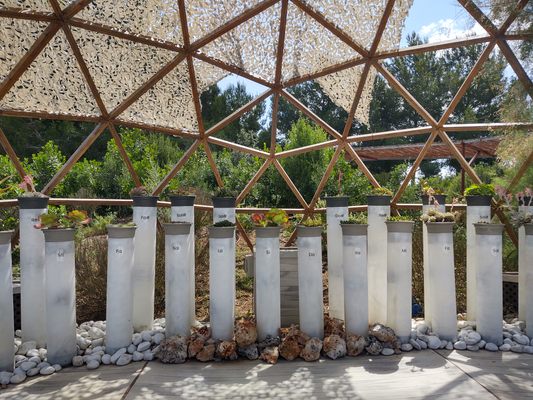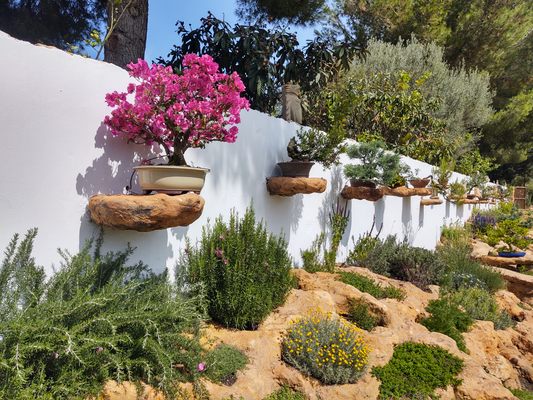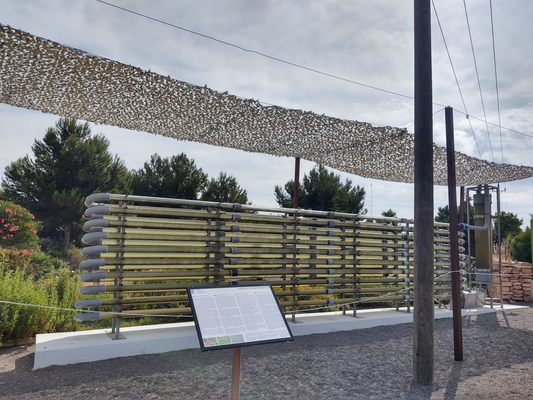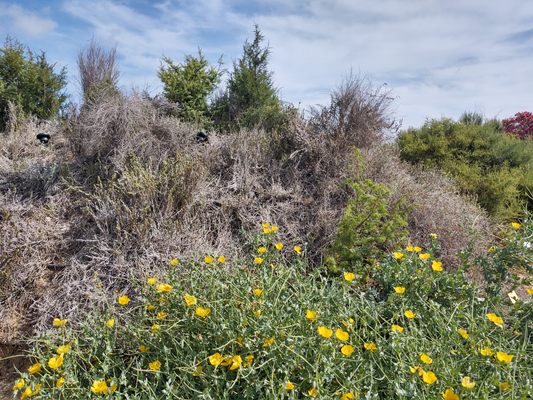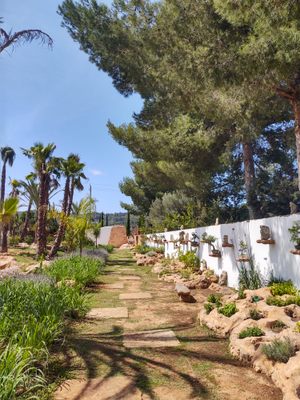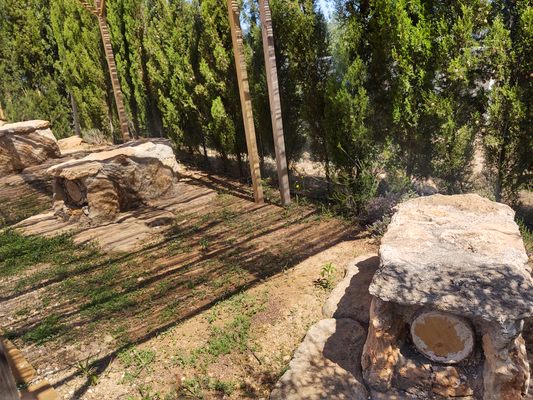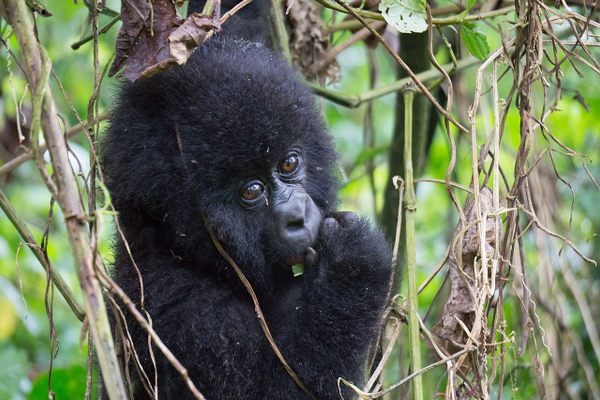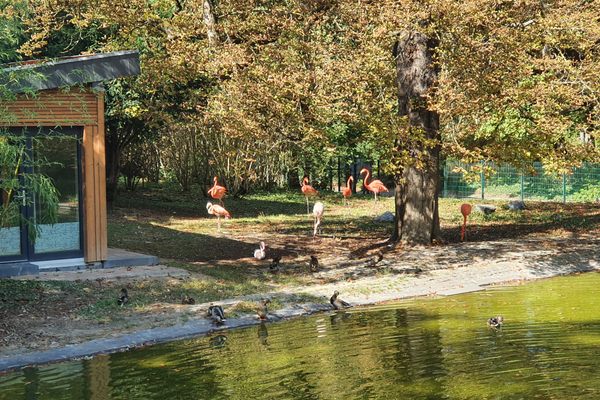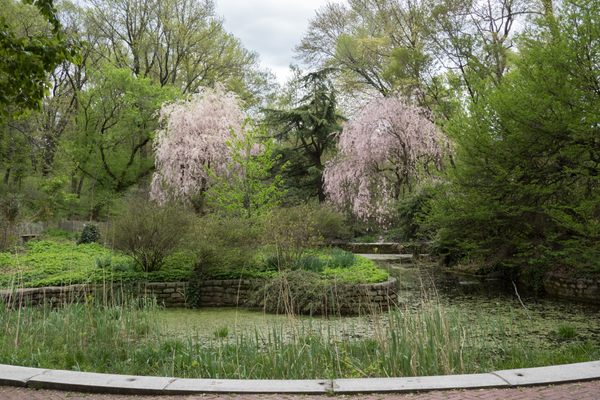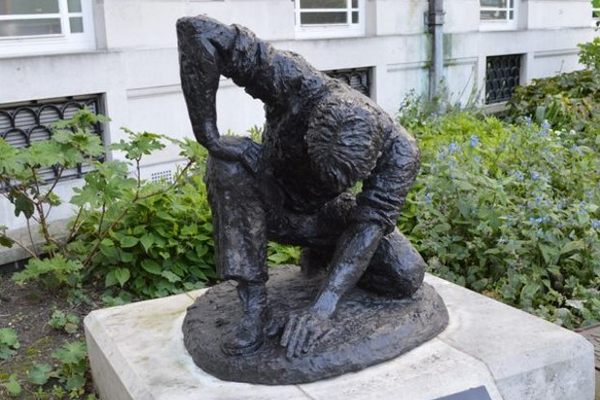About
Opened in May 2022, Bibo Park, the main botanical and biotechnological garden on the Spanish island of Ibiza, focuses on the preservation of local plant species, including endangered ones which are endemic to the island and others in the Pitiusas archipelago, such as Formentera and other nearby minor islands. The park also highlights the practical applications of plants in sustainable technologies.
One of the pieces of equipment on view is an algae-based photobioreactor near the park's entrance. In the device, a series of tubes cultivates algae that can be used in everything from power generation to carbon sequestration. Other notable instruments are those developed by the Barcelona-based company Bioo, especially their batteries and generators which are powered entirely by soil. These new technologies are found side-by-side with reproductions of much older ones, such as the Phoenician beehives which are mostly built out of rock. Modern reproductions of these are used to provide Bibo's own honey.
In addition to these practical biotech applications, you can also find more particular plant machines. The so-called "world's first vegetable piano" can be played freely when visiting the park. Due to humans' natural bioelectric field, touching a plant such as a succulent causes it to change its own field in response. The piano takes advantage of this as its "keys" are topped with live succulents, when touching their green leaves (it doesn't work with any part of the plant that's dead), the plants' reactions activate an electric circuit that then plays a corresponding note.
Bibo Park also highlights the plight of the Pitiusan sargantana, a lizard that is the only vertebrate native to the islands. The sargantana is well-known for its coloring variation, which changes between different islands as well as some of the larger ones. As an example, the north Ibizan sargantana has different coloring from one in the south, but both are shades of brown.
On the other hand, the lizards from Formentera or S'Espartar are green and blue. Already in decline due to habitat disturbances and the introduction of domestic animals on the islands, the sargantanas' population has continued to decline in recent decades due to the introduction of a snake from the Spanish mainland. For the snakes, the lizards are easy prey since they have no natural defenses against the invasive reptiles. The park even sells snake traps to help support the endangered lizards.
Related Tags
Know Before You Go
Entry for non-residents ages 13 and above is 16€ per person. Children aged 7-12 pay 9€, and those younger go in for free (up to 3 children). Pricing for residents and large parties is available online.
In addition to the guided visits, Bibo Park offers events, also found on their website. Entry to the park will also allow access to the Ibizaloe aloe vera plantation, its sister project found 5km northwest.
Community Contributors
Added By
Published
June 27, 2023
Sources
- https://www.diariodeibiza.es/ibiza/2021/01/11/leva-serpientes-29444361.html
- https://www.esformentera.com/las-sargantanes-de-formentera-2012/
- https://batteriesnews.com/bioo-energy-biological-batteries-being-launched-internationally-after-demonstrating-effectiveness-cities-generating-power-parks-gardens-green-roofs/
- https://www.energyportal.eu/news/third-generation-biofuels/4893/
- https://www.noudiari.es/empresas/el-parque-ibiza-botanico-biotecnologico-abre-sus-puertas/
- https://www.diariodeibiza.es/empresas-en-ibiza/2023/05/27/visite-bibo-park-podra-beber-87940341.html
